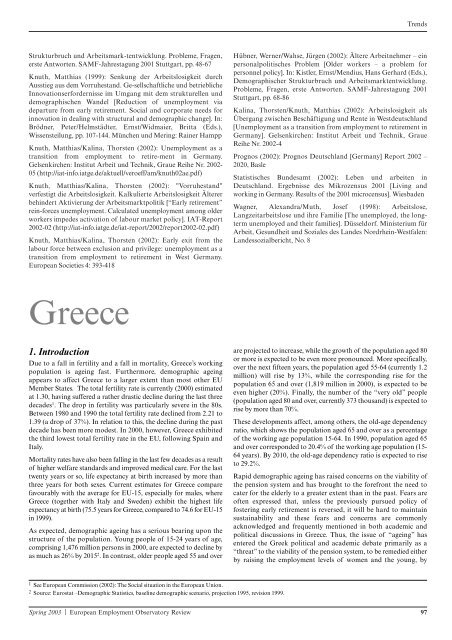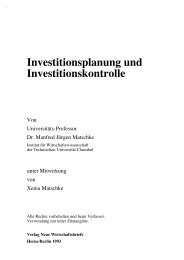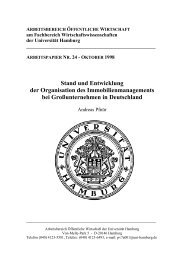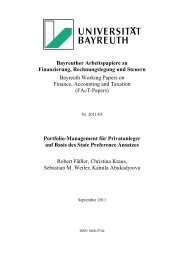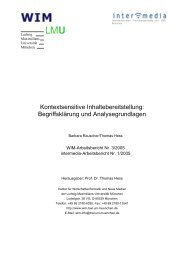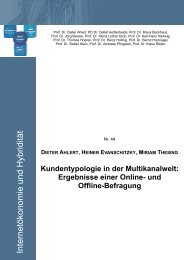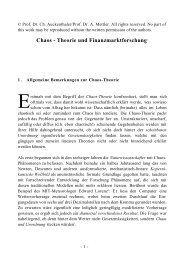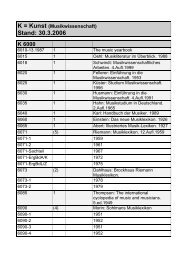FRANCE The
FRANCE The
FRANCE The
Create successful ePaper yourself
Turn your PDF publications into a flip-book with our unique Google optimized e-Paper software.
Strukturbruch und Arbeitsmark-tentwicklung. Probleme, Fragen,<br />
erste Antworten. SAMF-Jahrestagung 2001 Stuttgart, pp. 48-67<br />
Knuth, Matthias (1999): Senkung der Arbeitslosigkeit durch<br />
Ausstieg aus dem Vorruhestand. Ge-sellschaftliche und betriebliche<br />
Innovationserfordernisse im Umgang mit dem strukturellen und<br />
demographischen Wandel [Reduction of unemployment via<br />
departure from early retirement. Social and corporate needs for<br />
innovation in dealing with structural and demographic change]. In:<br />
Brödner, Peter/Helmstädter, Ernst/Widmaier, Britta (Eds.),<br />
Wissensteilung, pp. 107-144. München und Mering: Rainer Hampp<br />
Knuth, Matthias/Kalina, Thorsten (2002): Unemployment as a<br />
transition from employment to retire-ment in Germany.<br />
Gelsenkirchen: Institut Arbeit und Technik, Graue Reihe Nr. 2002-<br />
05 (http://iat-info.iatge.de/aktuell/veroeff/am/knuth02ae.pdf)<br />
Knuth, Matthias/Kalina, Thorsten (2002): "Vorruhestand"<br />
verfestigt die Arbeitslosigkeit. Kalkulierte Arbeitslosigkeit Älterer<br />
behindert Aktivierung der Arbeitsmarktpolitik [“Early retirement”<br />
rein-forces unemployment. Calculated unemployment among older<br />
workers impedes activation of labour market policy]. IAT-Report<br />
2002-02 (http://iat-info.iatge.de/iat-report/2002/report2002-02.pdf)<br />
Knuth, Matthias/Kalina, Thorsten (2002): Early exit from the<br />
labour force between exclusion and privilege: unemployment as a<br />
transition from employment to retirement in West Germany.<br />
European Societies 4: 393-418<br />
Greece<br />
1. Introduction<br />
Due to a fall in fertility and a fall in mortality, Greece’s working<br />
population is ageing fast. Furthermore, demographic ageing<br />
appears to affect Greece to a larger extent than most other EU<br />
Member States. <strong>The</strong> total fertility rate is currently (2000) estimated<br />
at 1.30, having suffered a rather drastic decline during the last three<br />
decades 1 . <strong>The</strong> drop in fertility was particularly severe in the 80s.<br />
Between 1980 and 1990 the total fertility rate declined from 2.21 to<br />
1.39 (a drop of 37%). In relation to this, the decline during the past<br />
decade has been more modest. In 2000, however, Greece exhibited<br />
the third lowest total fertility rate in the EU, following Spain and<br />
Italy.<br />
Mortality rates have also been falling in the last few decades as a result<br />
of higher welfare standards and improved medical care. For the last<br />
twenty years or so, life expectancy at birth increased by more than<br />
three years for both sexes. Current estimates for Greece compare<br />
favourably with the average for EU-15, especially for males, where<br />
Greece (together with Italy and Sweden) exhibit the highest life<br />
expectancy at birth (75.5 years for Greece, compared to 74.6 for EU-15<br />
in 1999).<br />
As expected, demographic ageing has a serious bearing upon the<br />
structure of the population. Young people of 15-24 years of age,<br />
comprising 1,476 million persons in 2000, are expected to decline by<br />
as much as 26% by 20152 . In contrast, older people aged 55 and over<br />
1 See European Commission (2002): <strong>The</strong> Social situation in the European Union.<br />
2 Source: Eurostat –Demographic Statistics, baseline demographic scenario, projection 1995, revision 1999.<br />
Spring 2003 | European Employment Observatory Review 97<br />
Trends<br />
Hübner, Werner/Wahse, Jürgen (2002): Ältere Arbeitnehmer – ein<br />
personalpolitisches Problem [Older workers – a problem for<br />
personnel policy]. In: Kistler, Ernst/Mendius, Hans Gerhard (Eds.),<br />
Demographischer Strukturbruch und Arbeitsmarktentwicklung.<br />
Probleme, Fragen, erste Antworten. SAMF-Jahrestagung 2001<br />
Stuttgart, pp. 68-86<br />
Kalina, Thorsten/Knuth, Matthias (2002): Arbeitslosigkeit als<br />
Übergang zwischen Beschäftigung und Rente in Westdeutschland<br />
[Unemployment as a transition from employment to retirement in<br />
Germany]. Gelsenkirchen: Institut Arbeit und Technik, Graue<br />
Reihe Nr. 2002-4<br />
Prognos (2002): Prognos Deutschland [Germany] Report 2002 –<br />
2020, Basle<br />
Statistisches Bundesamt (2002): Leben und arbeiten in<br />
Deutschland. Ergebnisse des Mikrozensus 2001 [Living and<br />
working in Germany. Results of the 2001 microcensus]. Wiesbaden<br />
Wagner, Alexandra/Muth, Josef (1998): Arbeitslose,<br />
Langzeitarbeitslose und ihre Familie [<strong>The</strong> unemployed, the longterm<br />
unemployed and their families]. Düsseldorf. Ministerium für<br />
Arbeit, Gesundheit und Soziales des Landes Nordrhein-Westfalen:<br />
Landessozialbericht, No. 8<br />
are projected to increase, while the growth of the population aged 80<br />
or more is expected to be even more pronounced. More specifically,<br />
over the next fifteen years, the population aged 55-64 (currently 1.2<br />
million) will rise by 13%, while the corresponding rise for the<br />
population 65 and over (1,819 million in 2000), is expected to be<br />
even higher (20%). Finally, the number of the “very old” people<br />
(population aged 80 and over, currently 373 thousand) is expected to<br />
rise by more than 70%.<br />
<strong>The</strong>se developments affect, among others, the old-age dependency<br />
ratio, which shows the population aged 65 and over as a percentage<br />
of the working age population 15-64. In 1990, population aged 65<br />
and over corresponded to 20.4% of the working age population (15-<br />
64 years). By 2010, the old-age dependency ratio is expected to rise<br />
to 29.2%.<br />
Rapid demographic ageing has raised concerns on the viability of<br />
the pension system and has brought to the forefront the need to<br />
cater for the elderly to a greater extent than in the past. Fears are<br />
often expressed that, unless the previously pursued policy of<br />
fostering early retirement is reversed, it will be hard to maintain<br />
sustainability and these fears and concerns are commonly<br />
acknowledged and frequently mentioned in both academic and<br />
political discussions in Greece. Thus, the issue of “ageing” has<br />
entered the Greek political and academic debate primarily as a<br />
“threat” to the viability of the pension system, to be remedied either<br />
by raising the employment levels of women and the young, by


